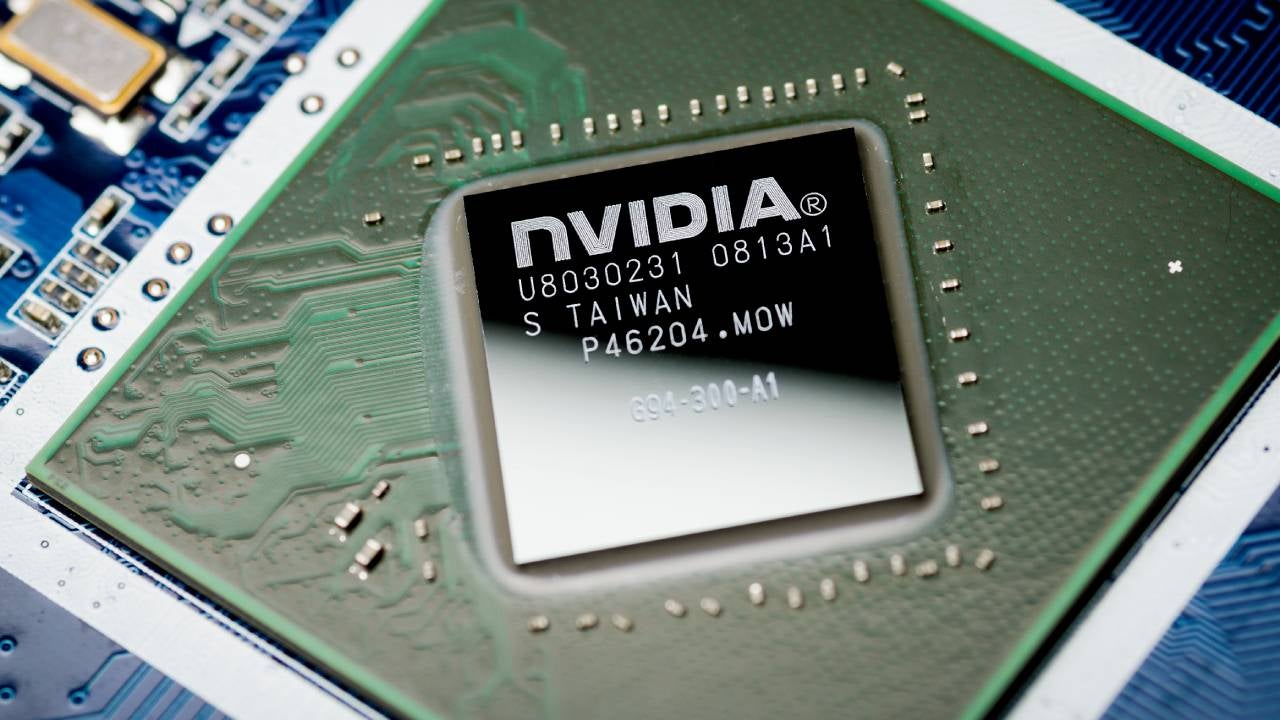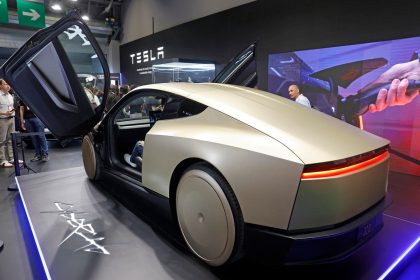Antonio Bordunovi/Getty Images
Already a multitrillion-dollar big tech juggernaut, Nvidia (NVDA) continues to generate impressive sales growth, and demand remains brisk despite export bans to China for some products. Those bans are already costing the company billions in sales and will cost even more in the second quarter. Despite those headwinds, Nvidia turned in a strong first-quarter performance.
Sales continued to surge year over year, growing from $26 billion in the prior-year quarter to $44.1 billion this year — a gain of around 69 percent year over year. It is tremendously impressive growth for a company of this size, even if the growth isn’t at the blistering levels of a couple of years ago. In late 2023 and early 2024, Nvidia recorded a few quarters of sales growth in excess of 200 percent.
Management said that sales were hurt by U.S. bans on shipments of its high-end H20 chips to China and that second-quarter sales would also be affected by the bans, to the tune of about $8 billion. But in a prepared statement, CEO Jensen Huang noted that business remains robust: “Global demand for Nvidia’s AI infrastructure is incredibly strong.”
In total for the quarter, Nvidia reported sales of $44.1 billion, compared to estimates of $43.3 billion. While the figures beat analysts’ sales estimates, the company fell short of earnings expectations. Earnings per share came in at $0.81, compared to analysts’ estimates of $0.93. The ban on H20 chips cost the company an incremental $0.15 in earnings per share, with the company taking $4.5 billion in charges due to the restrictions.
Much of its first-quarter sales — nearly 50 percent — are coming from so-called hyperscalers such as Amazon, Microsoft and Alphabet, which are building enormous data centers to power AI applications. Nvidia’s data center business represents the vast majority of its sales, with gaming chips coming in the second spot.
“Countries around the world are recognizing AI as essential infrastructure — just like electricity and the internet — and Nvidia stands at the center of this profound transformation,” said Huang.
While the hyperscalers are important to Nvidia, new sources of demand are also appearing. The firm will provide chips to Humain, an AI startup supported by Saudi Arabia’s sovereign wealth fund. The five-year deal will put the country on the AI map and drive billions in sales for Nvidia.
The announcement helps alleviate the nagging concerns of investors who are worried about the sustainability of Nvidia’s sales, especially in light of the Trump administration’s tariffs and trade bans on Nvidia’s powerful chips. Those worries hurt Nvidia’s stock at the start of the year.
Investors have also fretted that efficient AI models such as China’s DeepSeek will reduce the demand for Nvidia’s powerful chips. In response to the debut of DeepSeek and other Chinese AI models, the Trump administration implemented tighter restrictions on exporting Nvidia’s H20 chips to China.
The ban is expected to hit Nvidia’s sales to the tune of $8 billion in the second quarter. That’s no small impact when the company’s most recent quarterly sales are just north of $40 billion. But Nvidia is working on a modified version of the H20 chip to meet the Trump administration’s requirements, according to Reuters.
Nvidia stock outlook in 2025
While the development of efficient AI models such as DeepSeek worried investors early in the year and Trump’s tariff tantrum rattled markets, the shares have shrugged off those concerns for now. The stock was up the day following the first-quarter report, though it still sits below its 52-week high of more than $153 per share.
If anything, the Trump administration’s ban on some Nvidia chips shows just how much unfulfilled demand remains out there. If not for the export restrictions, sales would have been much higher. So if Nvidia can make further modifications to meet compliance, sales may have some baked-in upside, setting up further growth in the quarters ahead.
“China is, and will remain the largest overhang on Nvidia shares until we get resolution from the Trump administration,” said D.A. Davison analyst Gil Luria. “It was highlighted that the company will experience ‘material adverse impact on [their] business going forward,’ if they are unable to sell into the Chinese market at all, even beyond the immediately outlined impact from this quarter and next on H20 bans.”
Meanwhile, old-guard rivals such as Intel scramble to play catch-up in the AI chip world, whereas Nvidia remains the name to beat.
So with what seems like endless demand for its top-line chips, Nvidia seems well positioned to continue its dominance if the economy can remain on track. That bodes well for Nvidia investors.
Editorial Disclaimer: All investors are advised to conduct their own independent research into investment strategies before making an investment decision. In addition, investors are advised that past investment product performance is no guarantee of future price appreciation.
Read the full article here
















